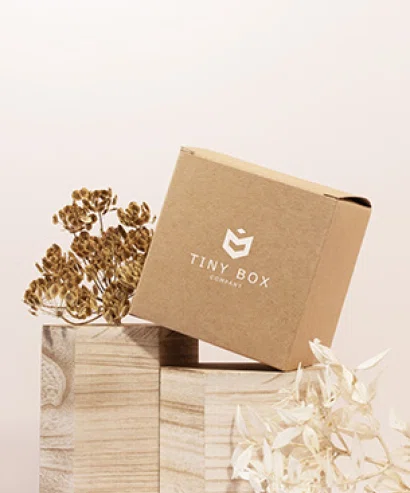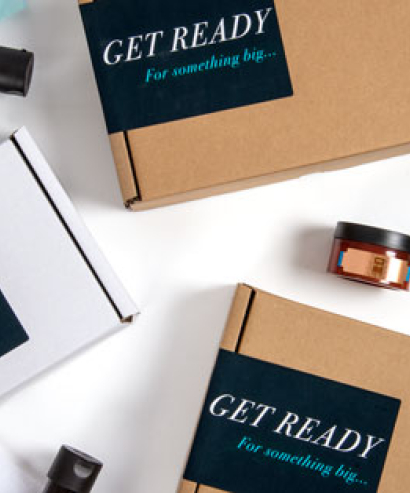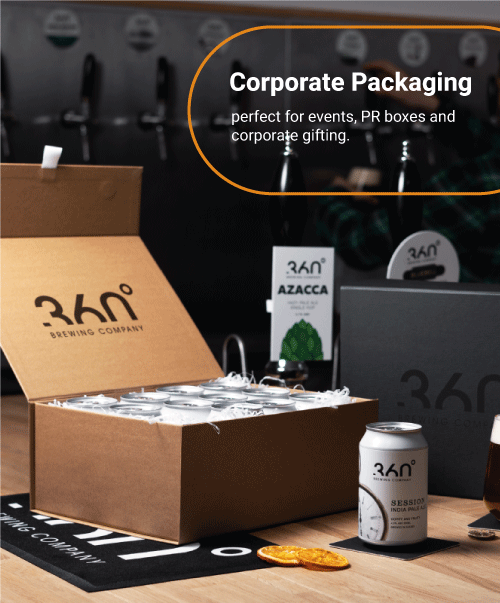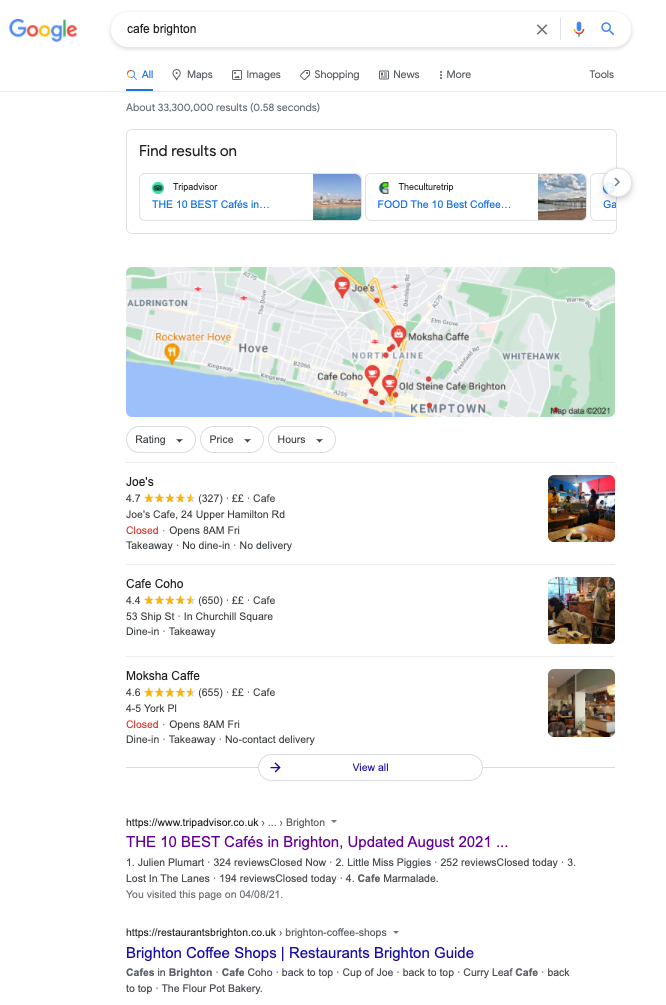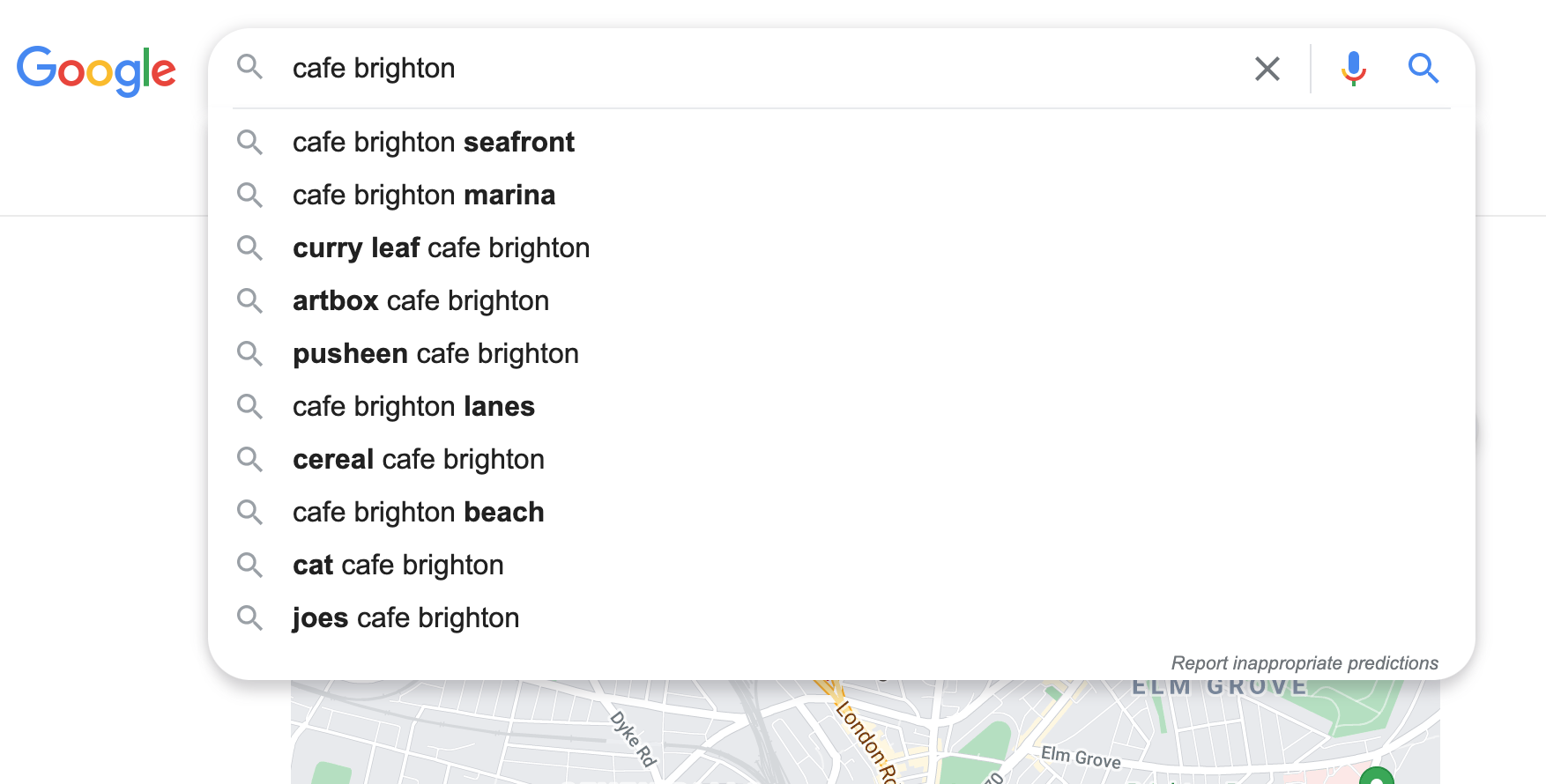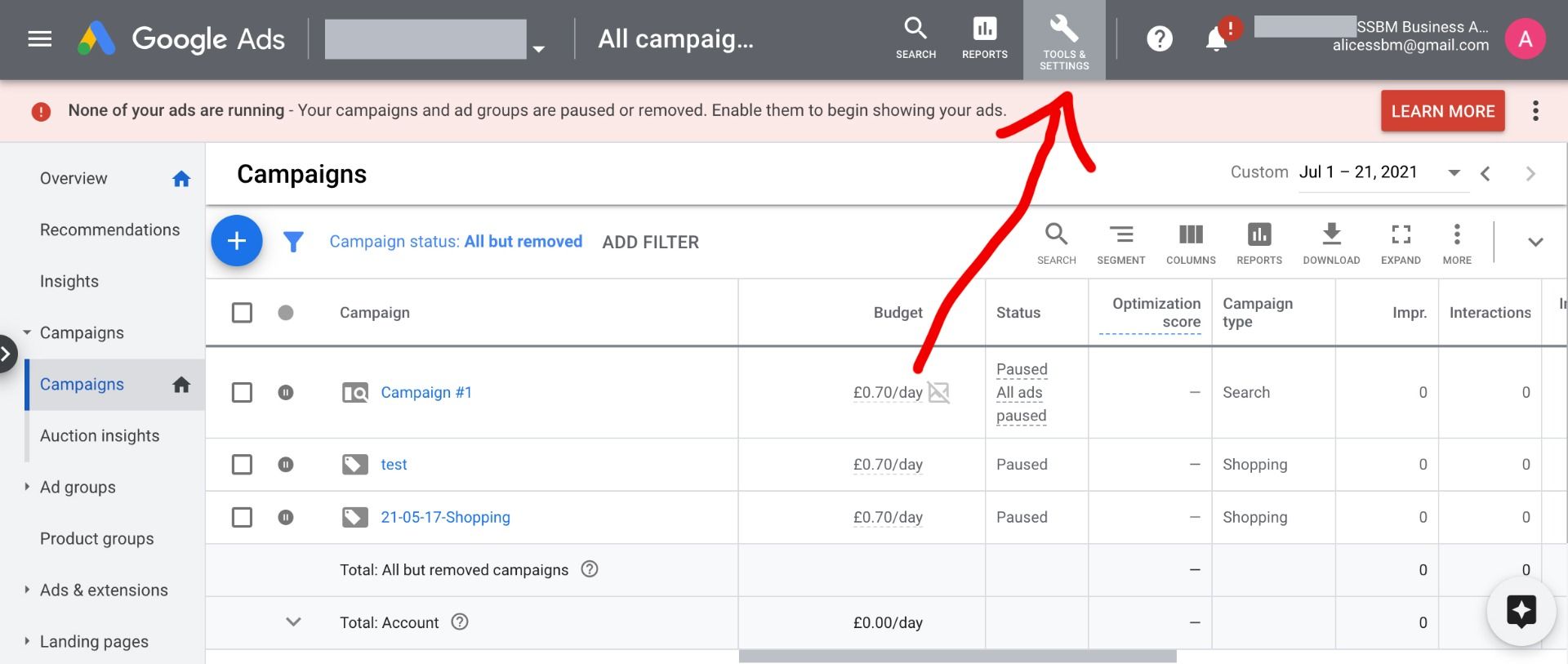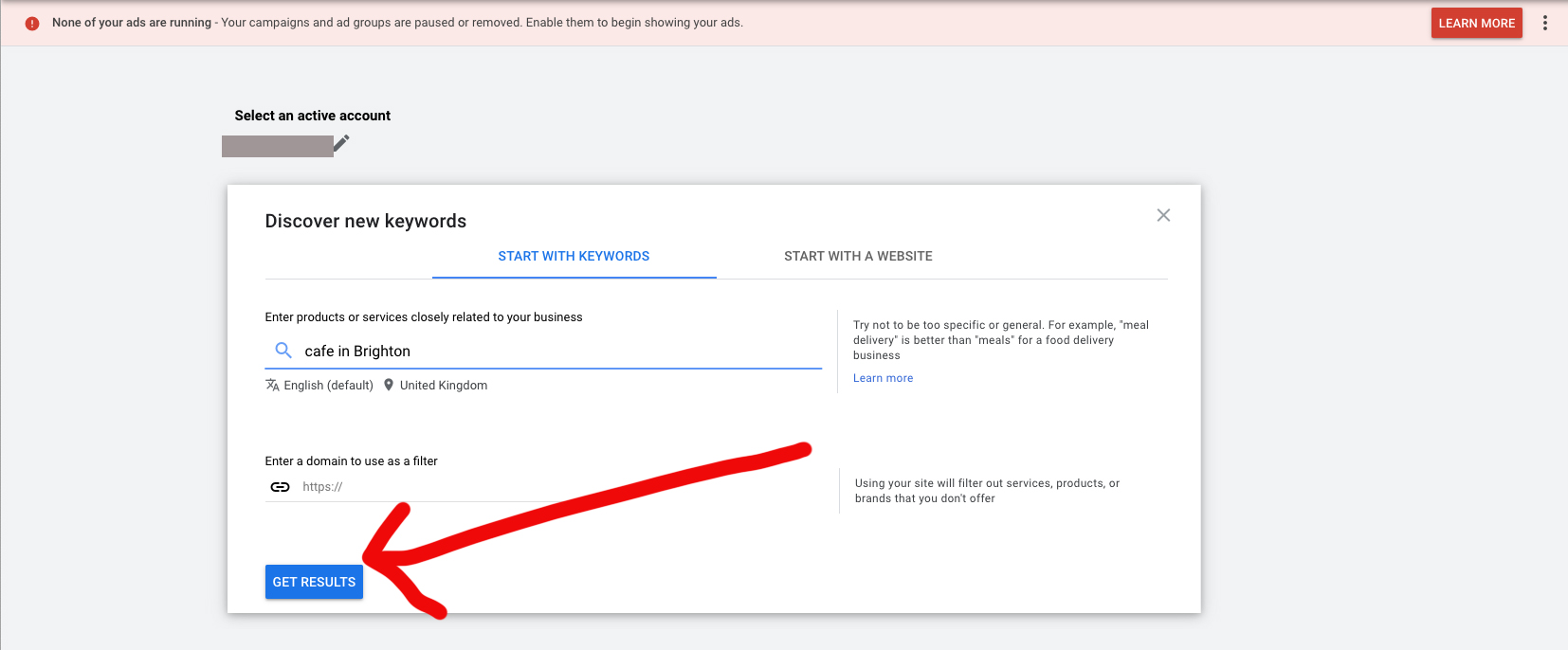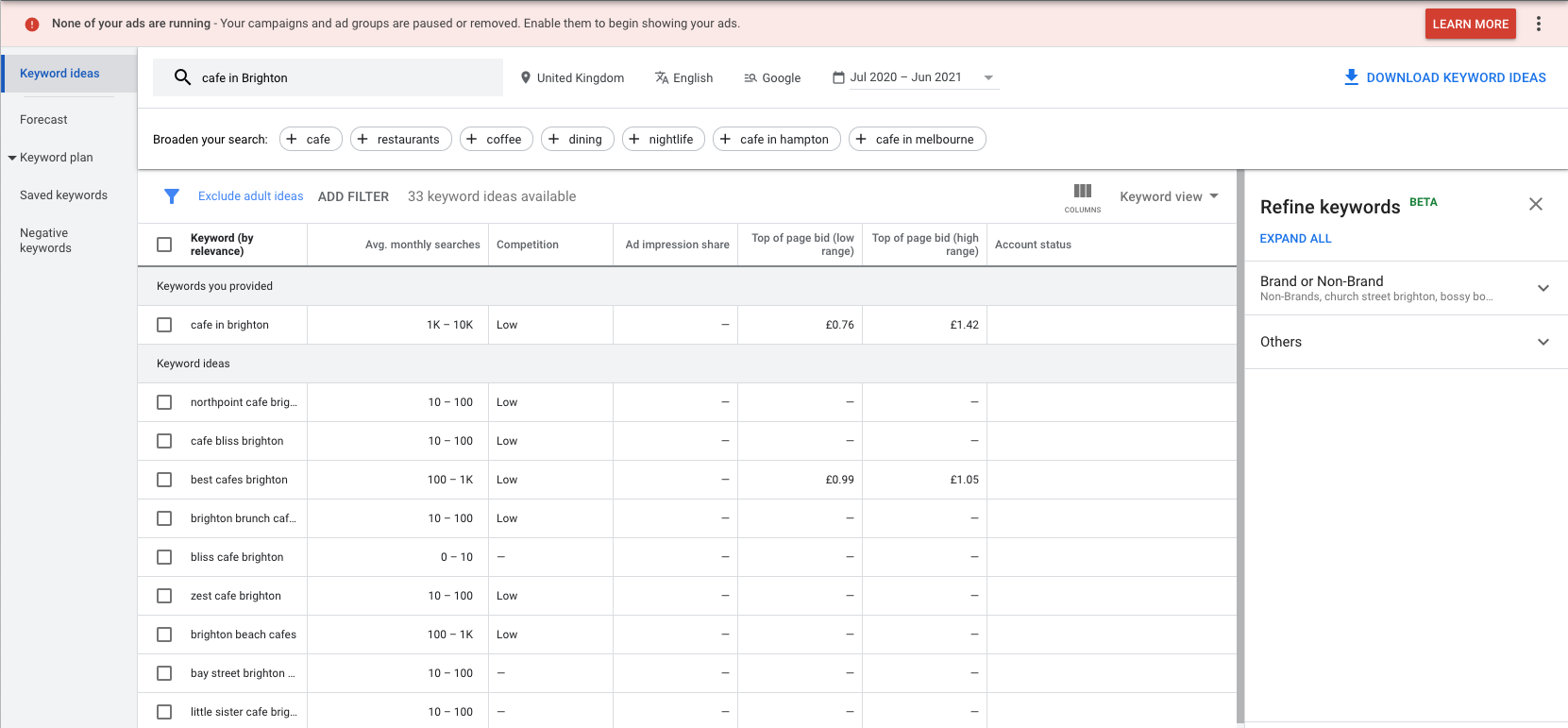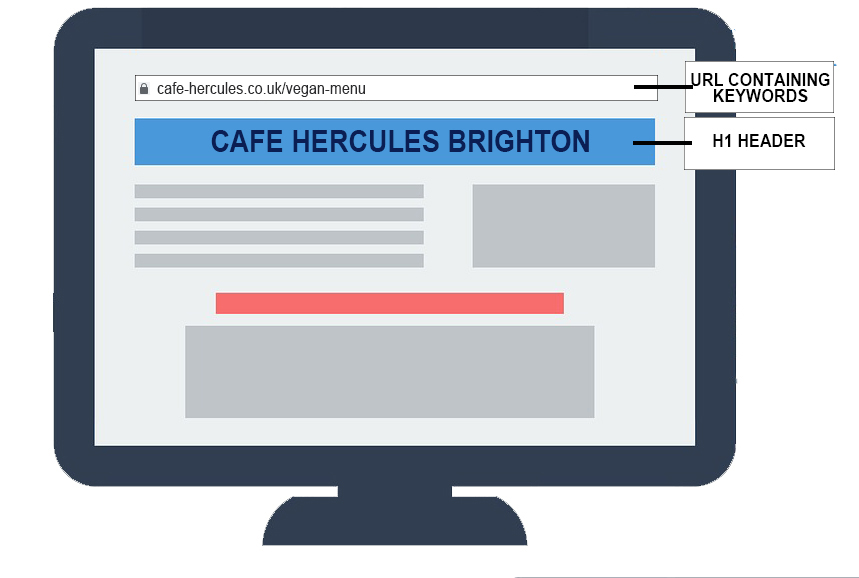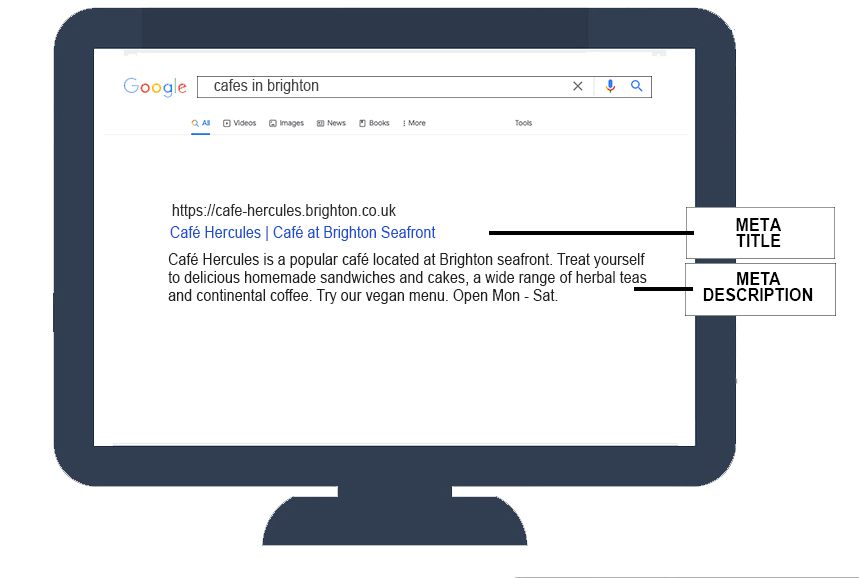If you are using Wordpress, install Yoast. It’s a free plugin and will guide you through the on-page process.
Some other platforms, such as Wix, have built in SEO help. It is super important that you include the H1 header on each page, as well as at least 100 words (preferably more like 300 if you can) of text. It’s really important to include your keywords but not to ‘stuff’ them. Your text should be natural sounding and if you overdo the keywords, Google can penalise you. This is rare but quite hard to recover from.
If your business is in more than one location, create landing pages for each location.
Try not to duplicate the content on these pages if you can. Focus the homepage content on the primary location.
Your contact page is also your friend in terms of SEO. Create a separate “contact us” page that contains your keywords and a map. Contact us pages are often overlooked but they can be very helpful in terms of both SEO and user experience.
Local Content
Being engaged with your community is good for business in so many ways. Obviously, local networking may bring you more customers and you can ask local businesses to link to your website – I’ll write more about links in a bit.
Also, consistently publishing content on your website, where you can organically include your key terms and location, will help your SEO.
For example, you can write a guide to local events which you can keep updated. You can share details of local charities, foodbanks, etc. If you can be useful, all the better, as people value useful content. Also, you can include other local businesses. For example, Hercules Café may do a blog post on the best places in Brighton to buy vinyl records. This obviously depends on its clientele. Or it may do a post on places to find out about volunteering in the local community.
3. Google My Business
Google is more-or-less in charge of the internet, right? Therefore, it makes sense that if you don’t use Google’s own directory then it won’t rank you very highly.
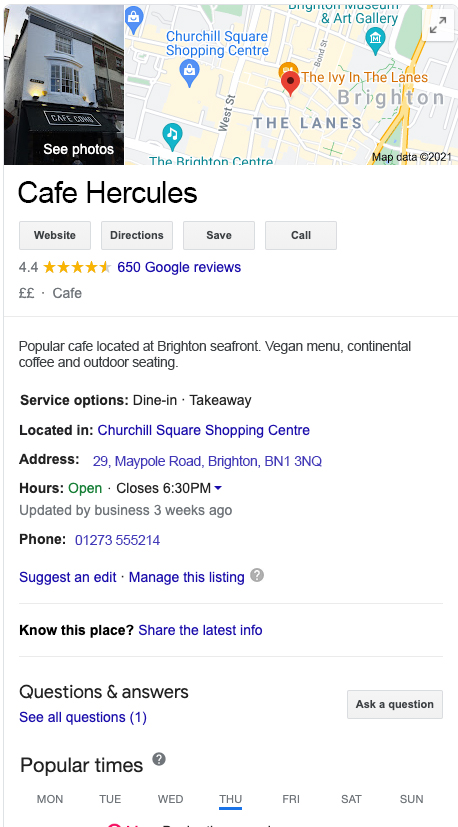
When done well, Google My Business will be very valuable for your SEO. You should take time over setting it up. In case you wondered, yes, Microsoft Bing has an equivalent called Bing Places. However, it has less than 10% of the market share so it is much less of a big deal than GMB. That said, it’s fairly simple to do and so is still worthwhile.
4. Local Citations
It amazes me how many businesses don’t take advantage of local citations. They are free and an integral part of your SEO strategy. These are basically free directories that you can enter your business details into – and Google places value on this.
There are many directories and doing this can be a bit of a pain but it’s worth it. However – and this is important – your information must be consistent. Before going crazy with the citations, check whether your business is already listed in any and whether the information is consistent. Your business name, address and telephone number should be exactly the same across all directories. This handy tool from Moz will find which directories you are already listed in, if any. If you find that you are listed and the information is not consistent, you should try to fix this.
Once you’ve completed your citation audit, you can set about listing yourself in more directories. Whitespark has a list of directories in the UK.
5. Social Media
No doubt your business has profiles on social media. I don’t need to say too much about this – however, as with citations, it is important that your business information is consistent. You also need to ensure that your profile includes your primary keywords.

6. Reviews
Reviews are important, not just to engender trust from potential buyers but also as a signal to Google that you are a bonafide, trustworthy business. Google reviews hold most weight but other sites, such as Yelp, will help with your SEO clout. It is important that you track reviews and respond to anything negative.
7. High-quality links
Links to your website from other websites have always been important for SEO. You might remember the days when websites would have a page of links and you could just ask businesses to link to you.
‘Link farms’ are no longer valid. Links are still hugely important but these must be high quality. The more popular and trustworthy that the site linking to yours is, the better. Bad links can actually be detrimental.
How do you persuade others to link to your website? There isn’t really a shortcut. Build relationships, create content and offer it to other businesses, guest blog and network. If you can do this, you will see a significant improvement in your rankings.
Naturally, links from local businesses and local websites, such as charities, government and media will help your local presence.
What you should do now
It is important to plan your approach to your local SEO. If you don’t have some kind of structure, you can easily get lost. It is time-consuming so it helps to set aside an amount of time every day to address one or two tasks.
SEO isn’t a one-off. The internet is constantly moving just as your own business is. Google crawls your pages looking for fresh content to ensure that your business is staying relevant and up-to-date. Therefore, keep adding new links, write new local content frequently and ensure that Google My Business is updated regularly.
Once you get into the swing of this, you should find the process very rewarding.
Good luck!
Wanting more after this blog? Why not sign up for one of our FREE 1-1 business or marketing consultations with Tiny Box Clinic?
Sign up to Tiny Clinic
- https://ahrefs.com/blog/local-seo/





